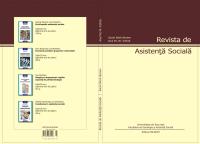The Lived Experience of Five Clients in Recovery from Drug Addiction
The Lived Experience of Five Clients in Recovery from Drug Addiction
Author(s): Oana Rotărescu, Emma SleathSubject(s): Social Sciences
Published by: POLIROM & Universitatea Bucureşti - Dept. de Sociologie şi Asistenţă Socială
Keywords: drug interventions;treatment;drug related offending;interpretative phenomenological analysis;personal experiences;
Summary/Abstract: The present study explores the lived experience of recovery from drug addiction of a sample of five participants involved with a community‑based drug rehabilitation centre from Dublin inner‑city. Interpretative phenomenological analysis (IPA) has been employed to gain the participants perspectives on what was successful regarding their recovery from drug addiction. Transcripts were analysed using IPA method and analysis revealed a number of themes. The main themes are: the context and the background of addiction, recovery as a process of gradual development of awareness and knowledge around requirements to obtain and maintain abstinence, the link between addiction and forensic history, the turning point as a very negative or a string of very negative experiences, triggers for relapse as negative external and internal factors, drug treatment as a continuum of care, recovery as learning how to talk, communicate and trust people again, recovery as group work and support, recovery as total abstinence and therapeutic alliance as a necessary ingredient of a successful recovery. These findings imply that recovery is a complex, multi‑episodic process which requires multiple interventions appropriate for each particular stage of recovery. Individual, familial and community factors need to be addressed if a successful recovery is desired. Group work and therapeutic alliance are of crucial importance.The present study explores the lived experience of recovery from drug addiction of a sample of five participants involved with a community‑based drug rehabilitation centre from Dublin inner‑city. Interpretative phenomenological analysis (IPA) has been employed to gain the participants perspectives on what was successful regarding their recovery from drug addiction. Transcripts were analysed using IPA method and analysis revealed a number of themes. The main themes are: the context and the background of addiction, recovery as a process of gradual development of awareness and knowledge around requirements to obtain and maintain abstinence, the link between addiction and forensic history, the turning point as a very negative or a string of very negative experiences, triggers for relapse as negative external and internal factors, drug treatment as a continuum of care, recovery as learning how to talk, communicate and trust people again, recovery as group work and support, recovery as total abstinence and therapeutic alliance as a necessary ingredient of a successful recovery. These findings imply that recovery is a complex, multi‑episodic process which requires multiple interventions appropriate for each particular stage of recovery. Individual, familial and community factors need to be addressed if a successful recovery is desired. Group work and therapeutic alliance are of crucial importance. Implications for practice and limitations of the present study are discussed.
Journal: Revista de Asistenţă Socială
- Issue Year: 2016
- Issue No: 3
- Page Range: 19-36
- Page Count: 18
- Language: English
- Content File-PDF

